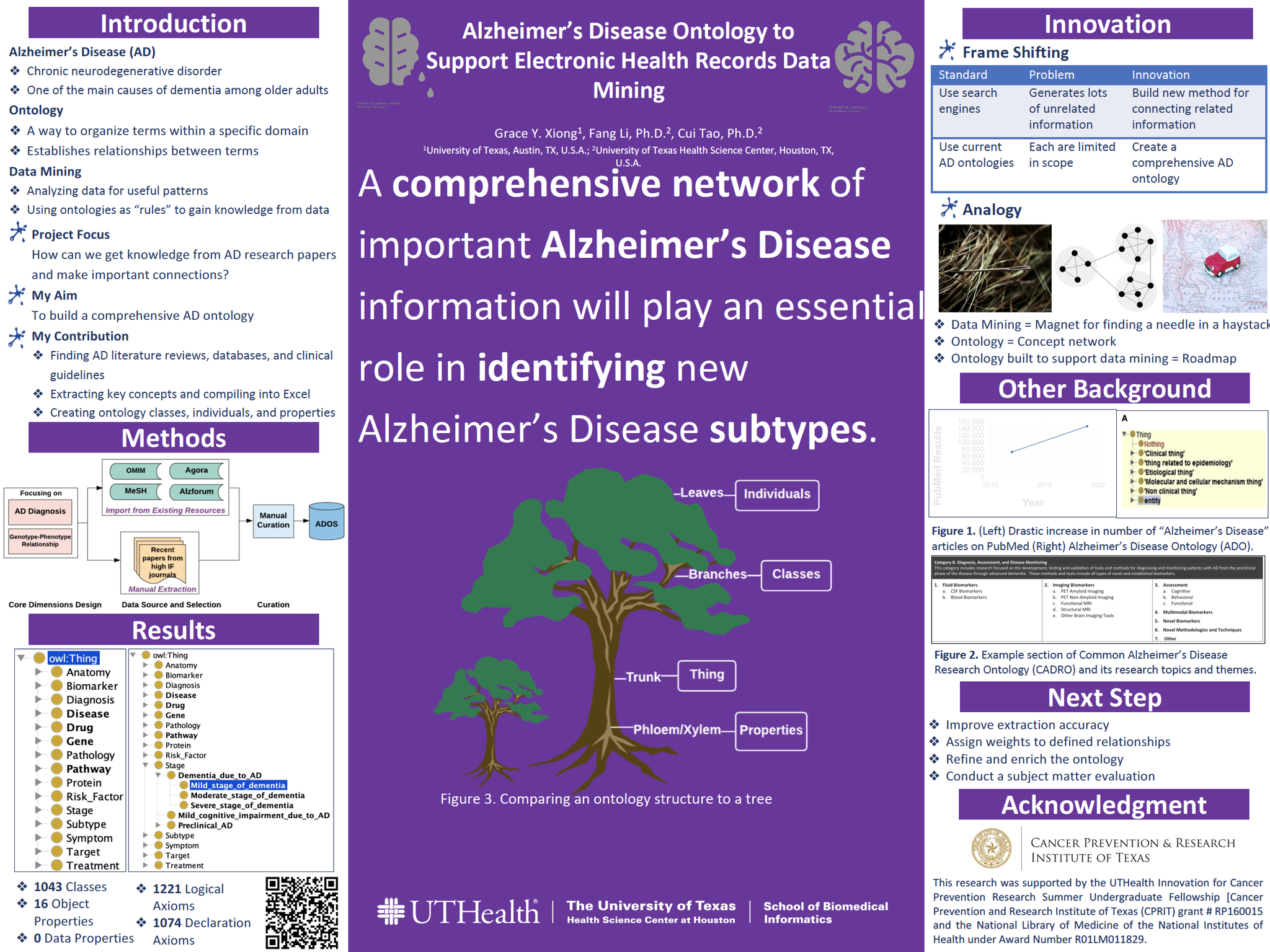Alzheimer’s Disease Ontology to Support Electronic Health Records Data Mining
Abstract for National Conference of Undergraduate Research (April 2021), University of Texas Undergraduate Research Forum (April 2020), and 123rd annual Texas Academy of Science Meeting (February 2020)

Image above: Poster submitted to the same three undergraduate research conferences
Alzheimer’s disease (AD) is a chronic neurodegenerative disorder characterized by the accumulation of beta-amyloid plaques and protein tau tangles in the brain. AD affects the lives of more than 50 million people worldwide and is one of the leading causes of dementia among older adults. Given the exigency of the situation, research on AD has skyrocketed over the past few years. Unfortunately, even with large amounts of data, there still lacks a treatment to slow the progression of AD. The relative lack of knowledge derived from new AD data poses a problem for health professionals diagnosing AD patients and researchers building upon previous findings. An informatics approach (machine learning, deep learning) to automatically mine new clues from large-scale data can be a solution. This article introduces our preliminary efforts on designing an ontology specific for supporting the data mining of electronic health records. POADO (Patient-Oriented Alzheimer Disease Ontology) is a comprehensive compilation of the most recent information about AD, including the essential elements of both the macro (symptom, risk factor, diagnosis, treatment) and micro-level (anatomy, biomarker, drug, gene, pathology, stage, target, protein, subtype). Well-curated databases and manual extraction were directly imported from high-quality papers to enrich the ontology (classes and properties). After manual curation and expert review, an evaluation for its usefulness and community consensus via Ontokeeper, a semiotic-driven, and web-based tool, will be performed. As an in-depth knowledge base, POADO would be promising in enabling computational algorithms to facilitate novel AD subtype discovery.
Post a comment